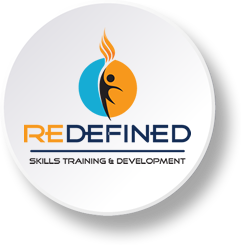INVEST IN YOUR
PROFESSIONAL GOALS TODAY!
Quick, Convenient & Affordable.

COURSE DURATION: 4 Days
OVERVIEW
WHO SHOULD ATTEND
This is a comprehensive training program designed for diligent individuals seeking to pursue a rewarding career in the field of education and training. Our rigorous curriculum covers all essential aspects of the Assessments industry, equipping participants with the requisiteknowledge and competencies to excel as a Moderator. The culmination of the program involves the compilation of the candidate’s portfolio of evidence, which occurs on the final day of training.
COURSE OUTCOMES
Upon completion of this course, the participants should be able to:
- Understand the importance of self-awareness for holistic development
- Demonstrate understanding of moderation within the context of an outcomes-based assessment system
- Plan and prepare for moderation
- Conduct moderation
- Advise and support assessors
- Report, record and administer moderation, and
- Review moderation systems and processes
This program is specifically crafted to equip you with the necessary skills to handle diverse challenges that may arise when interacting with learners in both academic and professional settings. Effectively managing difficult situations with a balanced approach is just as crucial as possessing expertise in training and developing workplace skills. The fourth day of the program provides an opportunity for you to submit your Portfolio of Evidence.
COURSE CONTENT
Chapter 1: Understanding Moderation
This chapter provides a comprehensive overview of key components of the Skills Development Framework, the National Qualification Framework, and the South African Qualification Authority, including their respective roles and purpose. Additionally, this chapter delves into the principles of moderation, which play a critical role in ensuring the validity and reliability of assessment results. Moderators will be equipped with a deep understanding of the general principles, methodologies, and instruments of assessment to effectively carry out their role in the moderation process. Through a thorough examination of these topics, moderators will be well-prepared to carry out their responsibilities with precision and effectiveness.
Chapter 2: Prepare and Plan for Moderation
This chapter delineates the moderation procedures that Moderators are expected to adhere to during the moderation process. Moreover, the chapter provides a comprehensive discussion on the utilization of moderation instruments and tools and their roles in recording the activities.
Chapter 3: Conduct Moderation
Chapter 3 of the module presents a comprehensive guide on the process of moderation.
Moderators are provided with an overview of the steps involved in moderation, including the key principles and methodologies. The chapter also focuses on conducting quality assurance, which involves verifying assessment decisions, scrutinizing the quality of evidence, and reviewing supplementary evidence. Through this, moderators gain a thorough understanding of the essential elements of a successful moderation process.
Chapter 4: Advising and supporting Assessors
Chapter 4 of the Moderator course provides training for Moderators on how to offer guidance and support to Assessors based on the moderated work.
Chapter 5: Administer and Review Moderation and Moderation systems The final chapter of the Moderation course focuses on the administration of moderation and the proper maintenance of moderation records. Moderators are trained on effective methods for administering moderation and keeping accurate records of the process. Additionally, moderators are equipped with the necessary skills to review and evaluate the effectiveness of existing moderation systems.


